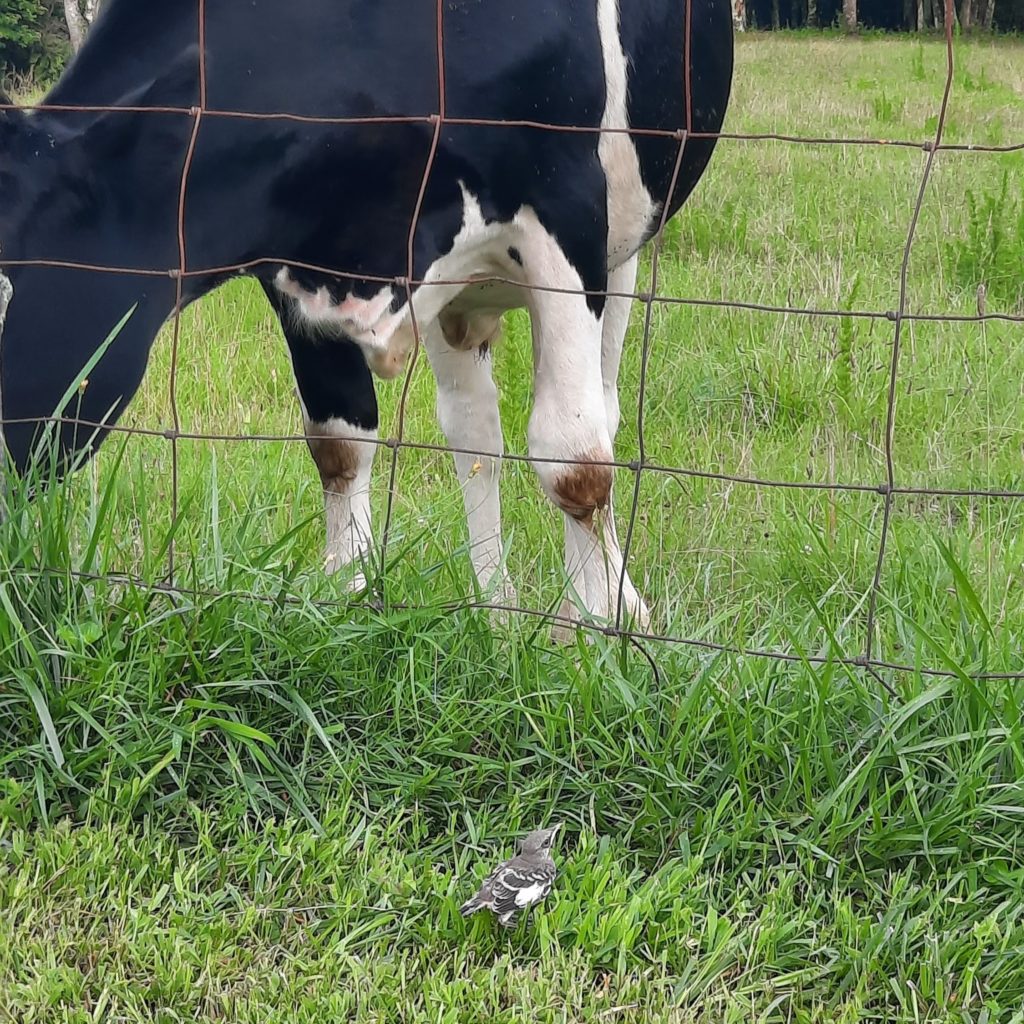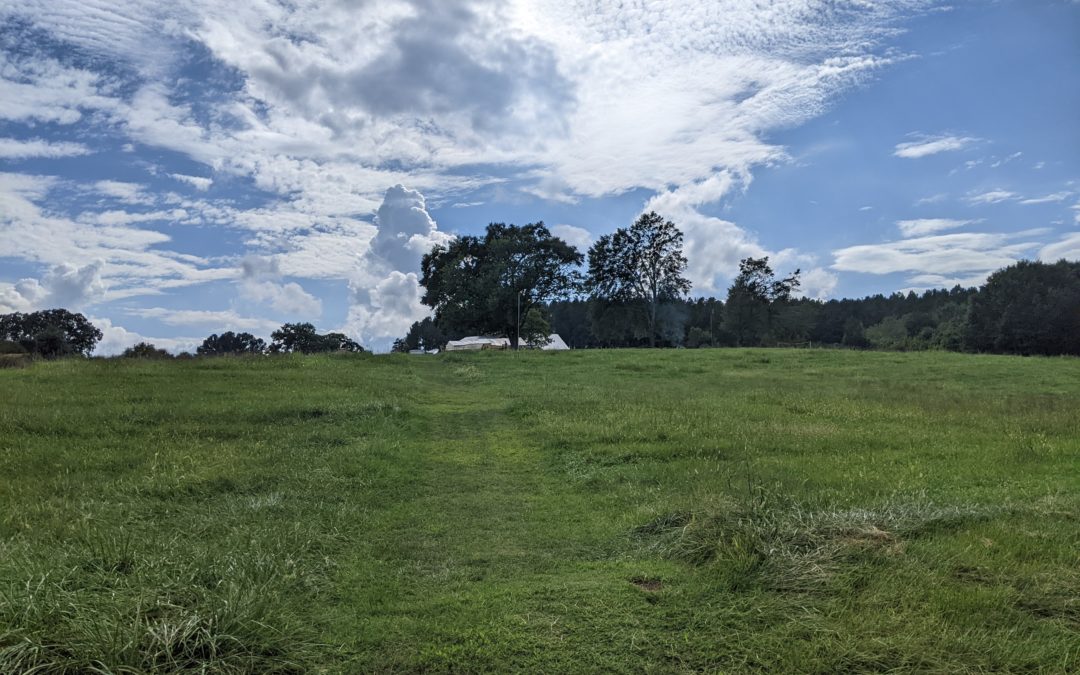One of my favorite places to be in the summer is in my garden. I especially love to spend time there early in the morning or in the cool of the evening. I also enjoy savoring alone time there, but one night last July I found myself in the garden with an uninvited guest.
While enjoying the peace of my cultivated space, the quiet was interrupted by a mockingbird’s insistent squawks.
Now, let it be clear, that I am a fan of wildlife. I love birds of all kinds. Mockingbirds, however, do not make it into my list of favorites. They are bullies. They are loud. Nevertheless, with four children, and being used to noise, I mostly tuned the bird’s chirping out.
Then, the following night she showed up again, still squawking. First, the mockingbird called from far away, then she flew closer, landing in a tree close by, and then alighted on a nearby fence post. All the while, she angrily chattered at me.
I did take more notice of her by this time and started to wonder why she was so upset by my presence. After all, it is my garden, not hers. Not having the full story, I did what humans do best and filled in the blanks to create a logical assumption. I came to the conclusion that she must have a nest in a tree close by.
On the third night, as I neared the garden, I could hear her begin her loud protest again. As before, I decided to ignore her, but as I walked closer to the garden, I saw a small movement.
Out from under the shade of one of my raised bed gardens full of green bean plants, hopped a baby bird, scared and disoriented. As I drew closer, it hopped away from the garden, and into the tall grass by our fence. A cow lazily chewed grass on the other side of the fence. There the baby bird stayed, frozen and warily watching me.
All the while, the mama bird kept warning me with her squawks to stay away.

Nature is a beautiful teacher if we are curious enough to observe it. The Lord teaches me many things while I am outdoors in His classroom. So, if you’ll allow me, I’d like to share two souvenirs we can take away from my mockingbird story.
The first souvenir is the fact that our brains are created to think in story form. When we don’t have all the pieces, our brains naturally fill in the gaps to form a story. We particularly do this with ourselves as the main characters of the story, almost always defining how the story impacts us. This can lead to all kinds of assumptions which may or may not be accurate.
My internal narrative about this situation was almost correct. The mockingbird was in fact an angry mother bird. However, I missed one key element. Her baby was in actual danger. She was not just being annoying, which is how it appeared in my narrative. In reality, she was holding vigil to protect her baby. This is the same reaction I would have if one of my babies needed protecting.
The second souvenir I’d like to share is about how this scenario relates to us as humans and the stories we tell ourselves about those in our midst with big, annoying behaviors.
As I learn more about trauma, psychology, and pain, it has become clear that in order to survive danger, either perceived or real, we humans have brains and behaviors that can adapt to get through it. Afterwards, though, our brains are changed. Our limbic system marks the event and anything associated with it as dangerous so we don’t allow the same event to occur again. Thus, overreactive or loud behaviors are often a trauma response or internal instinct that comes online to protect oneself from real or perceived threats.
Behavior always shows up for a reason, whether or not we understand it.
So, perhaps, the narrative we are telling ourselves about those in our midst who are annoying, loud, brash, or insistent, is coming from an incorrect assumption. Perhaps, their behavior is less about you and your presence and more about the self-protective strategies they use to manage or avoid difficult life circumstances.
Maybe, when faced with a loud and annoying interaction, we can take a breath and observe. Perhaps there is more to the story than meets the eye.
May we learn to be compassionate and curious about other people’s stories and how they intersect with our own story.

